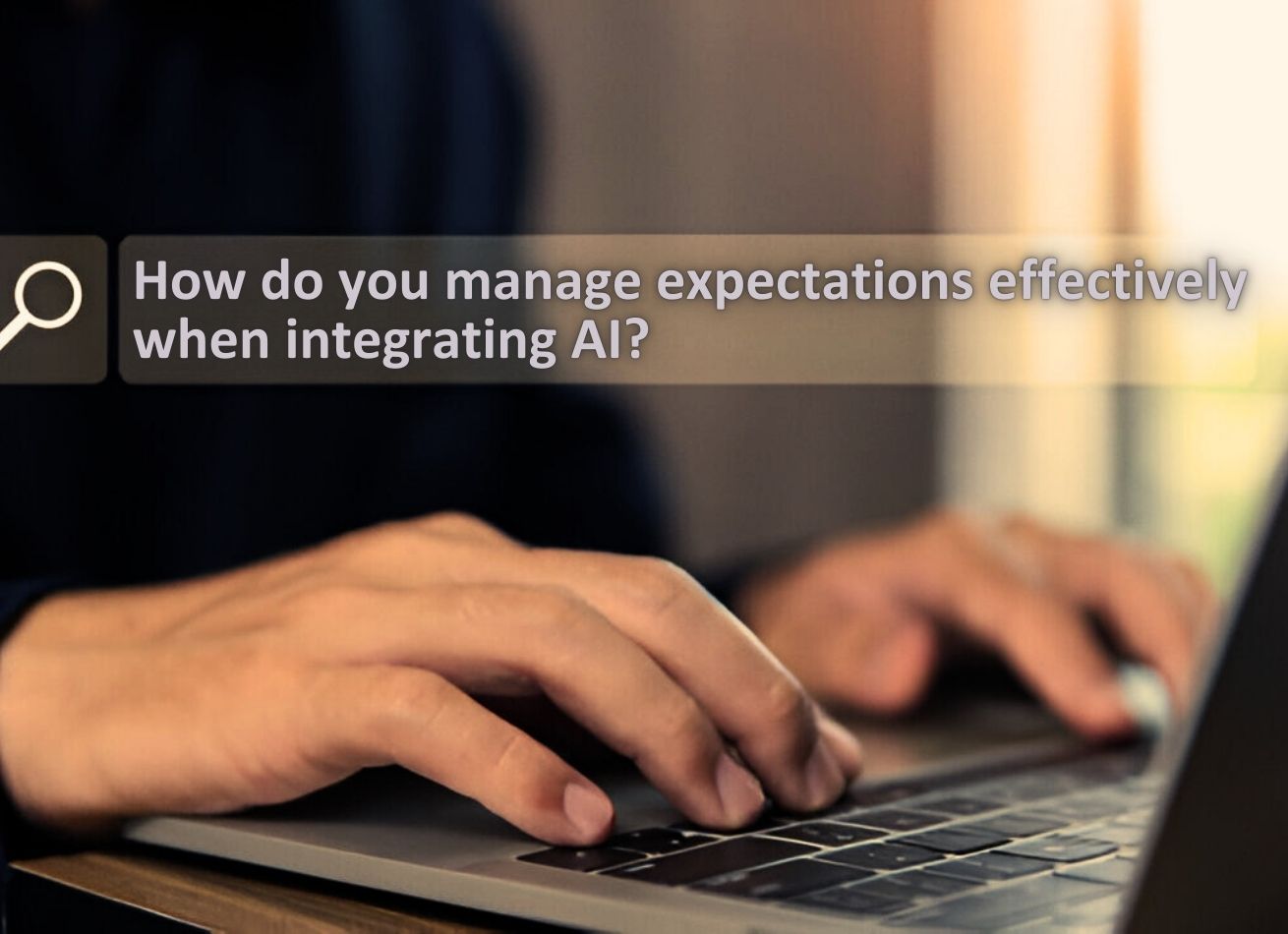Table of Contents:
- Introduction
- Understanding AI Integration in Business
- Common Challenges in AI Implementation
- Best Practices for Managing Expectations
- How 8 Tech Labs Can Help
- Conclusion
- FAQs
Introduction
Artificial intelligence (AI) is transforming company operations by providing unprecedented automation, insights, and efficiency. However, the disparity between expectations and reality might frequently impede successful AI implementation. Businesses want AI to produce quick results, but implementation takes rigorous preparation, alignment with company objectives, and reasonable expectations. In this blog, we look at the best ways to properly manage expectations while incorporating AI into existing business processes.
Understanding AI Integration in Business
AI integration involves embedding AI-powered solutions into business workflows to enhance decision-making, automate tasks, and improve efficiency. Key areas of AI implementation include:
- Data Analytics & Insights: AI can process vast amounts of data to uncover actionable insights.
- Automation & Efficiency: AI-driven automation reduces manual work and optimizes operations.
- Personalization: AI enhances customer experience by delivering tailored recommendations.
- Predictive Analytics: AI helps businesses forecast trends and make informed decisions.
- Process Optimization: AI streamlines workflows, reducing inefficiencies and redundancies.
Common Challenges in AI Implementation
Despite its potential, AI adoption comes with challenges that businesses must navigate carefully:
- Unrealistic Expectations: Expecting AI to be a magic solution without understanding its limitations.
- Data Quality Issues: Poor-quality data can negatively impact AI performance.
- Resistance to Change: Employees may resist AI-driven changes due to fear of job displacement.
- Integration Complexities: AI must align seamlessly with existing infrastructure and processes.
- Cost & ROI Concerns: Businesses may expect immediate returns without accounting for AI’s learning curve.
Best Practices for Managing Expectations
- Set Clear Goals and Objectives
- Define what AI should achieve in alignment with business priorities.
- Establish measurable KPIs to track AI success.
- Educate Stakeholders on AI Capabilities and Limitations
- Conduct AI training and awareness programs.
- Communicate that AI complements human efforts rather than replacing them.
- Start Small and Scale Gradually
- Implement AI in smaller pilot projects before company-wide adoption.
- Evaluate performance and make necessary adjustments.
- Ensure High-Quality Data Management
- Invest in proper data collection, cleaning, and labeling.
- Use AI tools that adapt to evolving data sets.
- Address Employee Concerns and Promote AI Acceptance
- Involve employees in AI projects to ease adoption.
- Showcase how AI enhances productivity rather than eliminating jobs.
- Continuously Monitor, Evaluate, and Improve AI Performance
- Regularly assess AI’s effectiveness and make iterative improvements.
- Stay updated with AI advancements to maintain a competitive edge.
How 8 Tech Labs Can Help
At 8 Tech Labs, we specialize in helping businesses integrate AI effectively while ensuring expectations are managed realistically. Our services include:
- AI Strategy & Consulting: Tailored AI strategies to align with business goals.
- IT Infrastructure & AI Implementation: Seamless AI integration into existing systems.
- Data Management & Optimization: Ensuring high-quality data for accurate AI results.
- AI Training & Change Management: Educating teams on AI adoption and benefits.
- Ongoing AI Performance Monitoring: Continuous support and optimization for AI-driven processes.
Conclusion
Managing expectations when incorporating AI into business processes is critical to its success. Businesses can fully realize the potential of AI by setting realistic goals, educating stakeholders, ensuring quality data, and continuously optimizing AI solutions. 8 Tech Labs offers expert guidance and tailored solutions to help organizations navigate AI adoption seamlessly and effectively.
FAQs
AI integration timelines vary based on complexity, data readiness, and business goals. A phased approach is recommended for smooth adoption.
No, AI enhances human productivity by automating repetitive tasks, allowing employees to focus on higher-value activities.
Industries like healthcare, finance, retail, and manufacturing significantly benefit from AI-driven process optimization and automation.
AI success is measured through KPIs like efficiency gains, cost savings, improved customer satisfaction, and data-driven decision-making.
We provide end-to-end AI consulting, implementation, and optimization services to ensure successful AI adoption aligned with your business needs.




